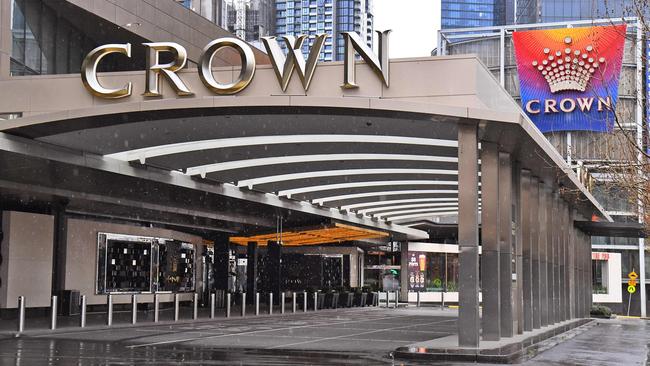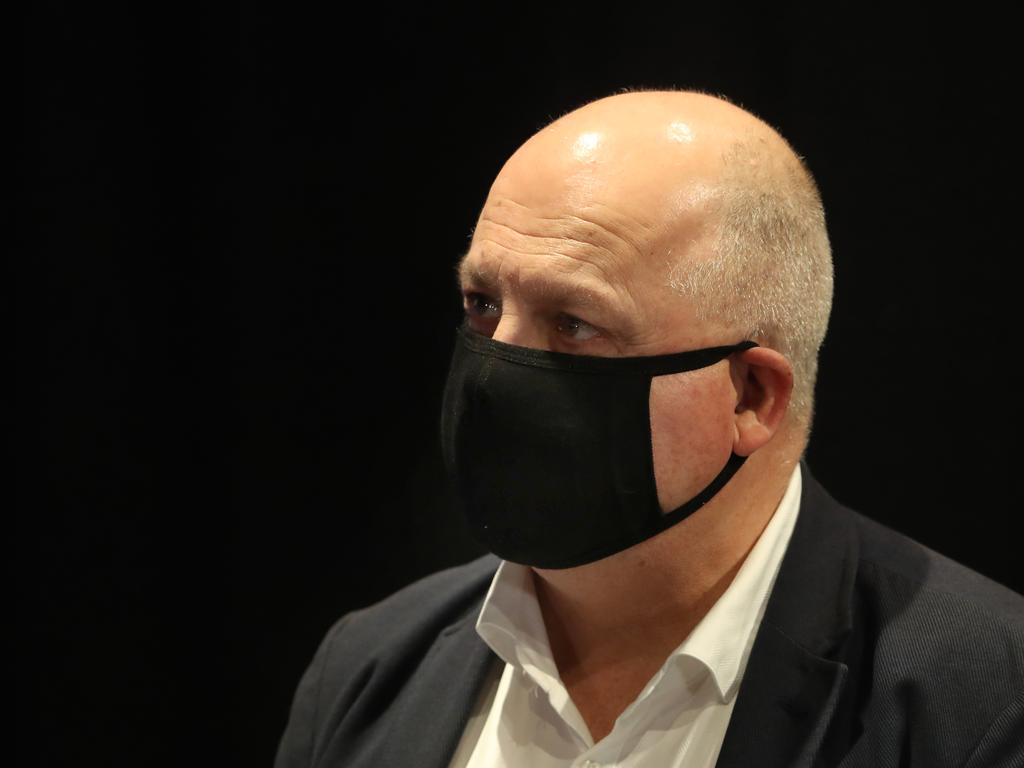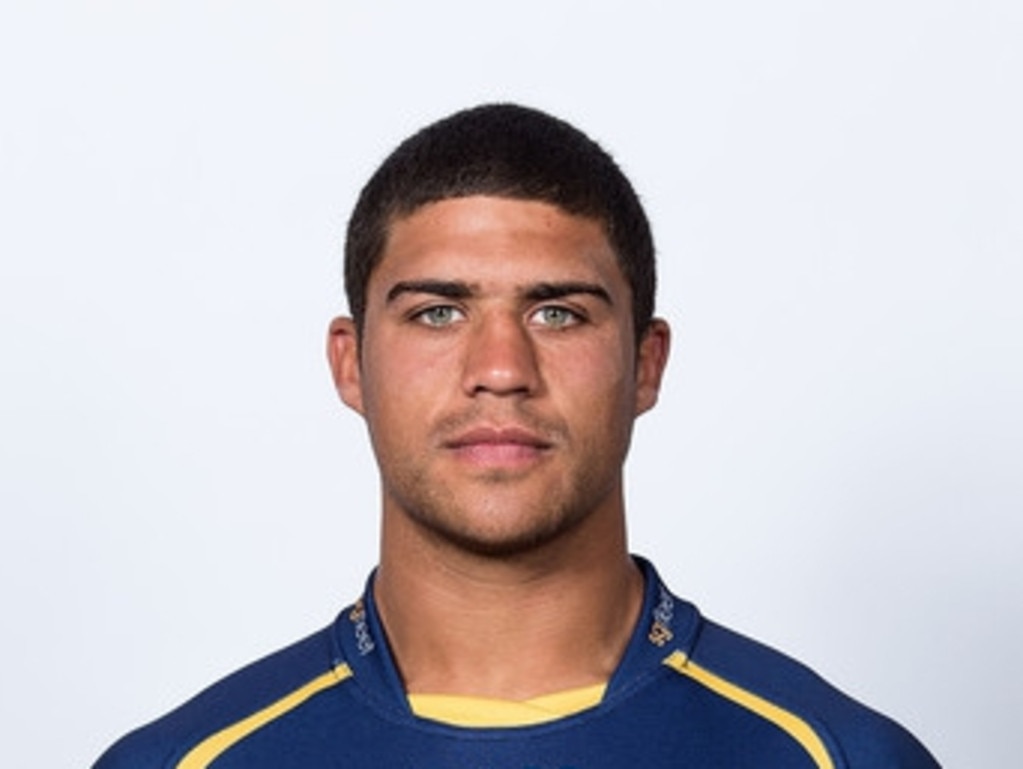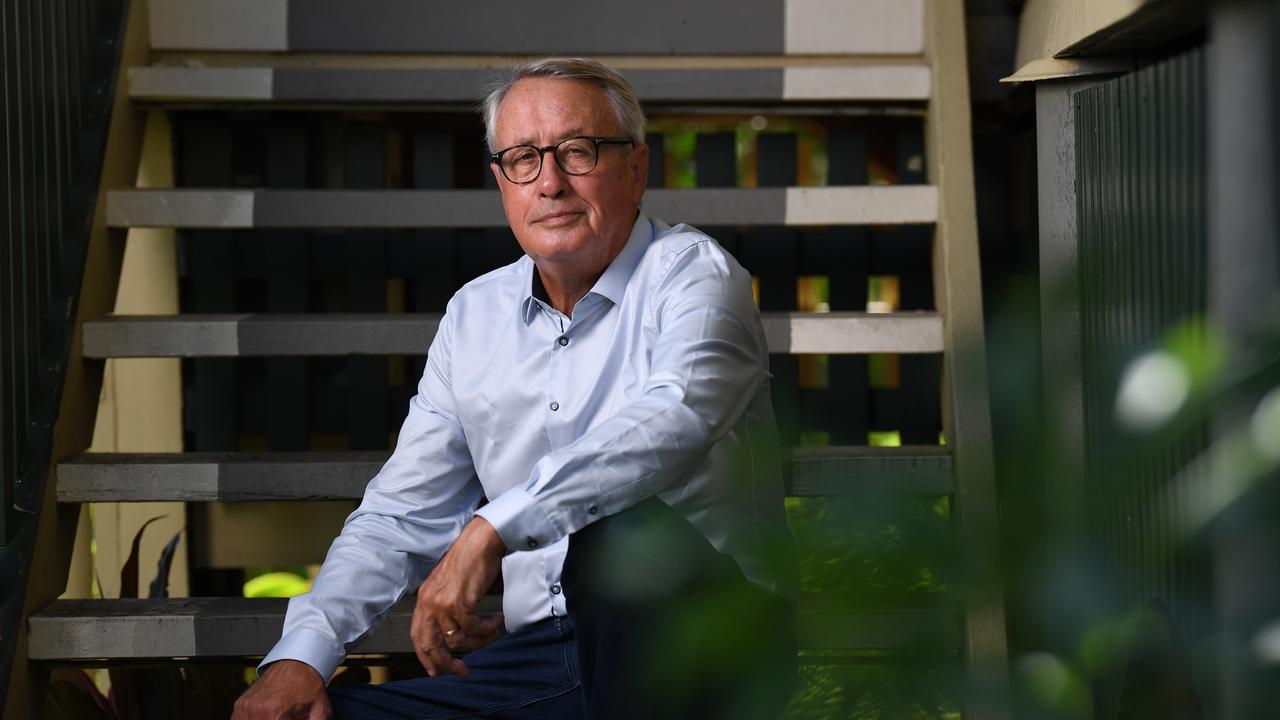Junket operator Suncity still ‘acceptable’ to do business with, Crown director Guy Jalland tells inquiry
The controversial junket operator is still an appropriate business partner for Crown Resorts, director Guy Jalland says.

A director of the James Packer-backed Crown Resorts believes the controversial Hong Kong group Suncity remains an “acceptable” junket operator and has disputed the claims of his chief executive that the casino group’s anti-money laundering (AML) functions were previously under-resourced with unqualified staff.
Guy Jalland, who is the chief executive of James Packer’s private company Consolidated Press Holdings (CPH) also maintained at a public inquiry into Crown on Wednesday that he did not believe Hong Kong casino magnate Stanley Ho had any involvement with Melco Resorts when CPH sold it a strategic shareholding in Crown last year.
Mr Jalland said he did not read a draft Hong Kong Stock Exchange announcement from Melco International announcing the sale that noted 20 per cent of the company was owned by Great Respect, which is one of a number of companies Crown is banned from dealing with under the terms of the licence for its Sydney casino because of its association with Mr Ho.
But Mr Jalland said if he read the announcement — which he stressed he was not asked to do — he still would not have thought Mr Ho had any interest in Melco Resorts.
He said Mr Ho’s son Lawrence, Melco Resorts chief executive, had long declared his independence from his father. And Mr Jalland said he had no reason to believe Stanley Ho — who passed away earlier this year — had become involved in Melco Resorts since Crown’s Asian joint venture with the group dissolved two years earlier.
Last week it was revealed CPH also contemplated selling a strategic shareholding in Crown to Suncity, which is chaired by businessman Alvin Chau, before it eventually sold the 19.9 per cent stake to Melco for $1.8bn.
Mr Jalland said on Wednesday he had yet not seen any concrete evidence justifying the casino company ceasing to do business with Suncity, noting it was still licensed to conduct business in NSW, Queensland and Macau.
His comments came despite Crown receiving a report earlier this month it commissioned from consultancy Berkeley Research Group that conducted investigations on some specific junket operators, including Suncity.
While the report is confidential, it was suggested at the inquiry that it listed numerous concerns about Suncity and Mr Chau.
“I accept there are issues. We don’t have access to law enforcement (intelligence). It is not easy. But on assessing this report, I did not see anything that we should cease doing business with them,’’ Mr Jalland told the inquiry, noting “a lot of this is allegation.”
Crown has now suspended dealing with controversial junket operators until June next year, a move that was suggested to the board by Mr Jalland, in line with a view of a number of directors. Mr Jalland formally joined the board in April last year, but had previously been invited to attend up to half the meetings each year in his capacity as a CPH executive.
“We have an eight-month window to do a lot of work on the junkets that may want to do business with Crown. We have to do a lot of work on where we draw the line in terms of the data and due diligence that we will accept disqualifies someone,’’ he said, before adding: “I don’t want Crown to do any business with bad people.”
Mr Chau was blocked from entering Australia last year due to his suspected links to organised crime and money laundering and Crown received reports in 2016 warning that the US government considered him to be involved in organised crime and that he appeared to be a former member of the “14K Triad” in Macau.
The inquiry has also heard Crown discovered $5.6m in cash stored in a cupboard in the Suncity’s private gaming room at Crown Melbourne and the room was closed in August last year.
In his evidence to the inquiry last week Crown chief executive Ken Barton said the company’s International VIP business had previously struck the wrong balance between generating revenue and managing risk and compliance, blaming a lack of leadership in oversight of operation.
It was also revealed he told the Crown board in its meeting on September 10 this year that he believed Crown’s AML function had previously been under-resourced and lacking in qualified AML executives.
But Mr Jalland said this was simply Mr Barton’s opinion.
“I will do more work in light of the observation but it is not something I thought was the case. We are dedicating significant resources in the area of AML. It has intense focus,’’ he said.
“I don’t accept that observation or contention. That doesn’t mean we can’t do more and do better and be smarter about it, which is what we are doing.”
Mr Jalland was also asked about Mr Barton’s decision at last year’s Crown annual general meeting not to tell shareholders about a special protocol which allowed Mr Packer to be provided with the company’s confidential information.
While he said at the time he did not think Mr Barton had failed to answer the question correctly, he suggested he “ducked the question” and noted that in hindsight that the answer was “incomplete.”
Mr Jalland was also asked a range of questions about the events leading up to the arrest of 19 Crown staff in October 2016, when they were charged with promoting gambling.
Sixteen of the senior management and sales team members spent between nine and 10 months in jail.
He agreed that information provided to Crown management that the company’s Chinese staff had expressed fear for their safety because of a government crackdown on gambling in foreign casinos should have been elevated to the board and was not, highlighting a failure in Crown’s risk management processes.
He also acknowledged no Crown directors had read advice provided by Chinese legal and consulting firms about the legal position of the company’s staff in China prior to the arrests.
He also described as “stupid” and “ridiculous” a plan proposed by Crown’s management in China that its staffers working in China apply for work permits in Hong Kong or Singapore, allowing them to say they worked out of an overseas location and were on business travel to China.
Crown has previously denied any of its staff breached Chinese laws before they were arrested for alleged gambling crimes and it has refuted any suggestion it had knowingly exposed its staff to the risk of detention.
The gambling giant is still facing a class action in relation to the Chinese arrests, which saw share price to dive almost 14 per cent, wiping more than $1.3bn from the company’s market value.






